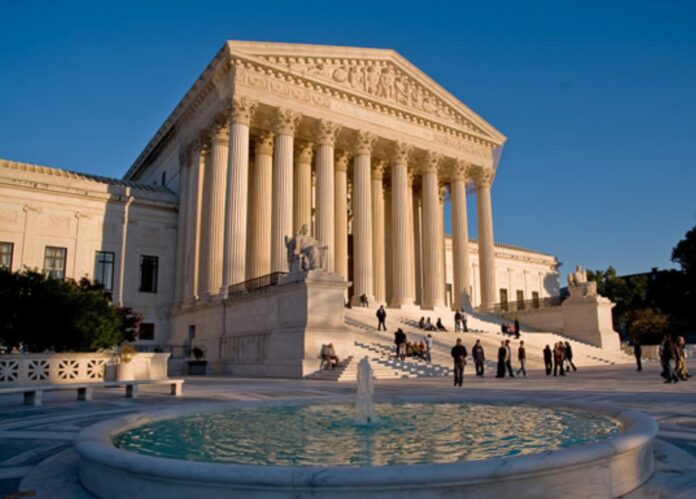In a landmark 6-3 decision on Friday, the US Supreme Court ruled that federal district courts may not issue nationwide injunctions, a move that allows President Donald Trump’s executive order restricting birthright citizenship to go into effect in some parts of the country.
The ruling is not a final ruling on the constitutionality of Trump’s order, which challenges an interpretation of the 14th Amendment granting automatic citizenship to those born on US soil. Instead, the court curtailed the power of lower federal judges, saying they may only block enforcement of federal policies for plaintiffs directly involved in a lawsuit, not across the entire country.
The case originated from a coalition immigration advocacy groups who challenged Trump’s 2025 executive order that seeks to restrict automatic citizenship for children born in the US to illegal immigrants. Their legal action prompted a liberal federal judge to halt the policy nationwide, a move the high court found to be beyond a single judge’s authority.
Justice Amy Coney Barrett, writing for the majority, strongly rebuked Justice Ketanji Brown Jackson’s dissent, which had argued that the majority ruling “is an existential threat to the rule of law.” Jackson was so furious, she did not even sign her dissent with the usual “I dissent” or “respectfully, I dissent.”
Barrett wrote, “We will not dwell on Justice Jackson’s argument, which is at odds with more than two centuries’ worth of precedent, not to mention the Constitution itself. We observe only this: Justice Jackson decries an imperial Executive while embracing an imperial Judiciary.”
The decision means that Trump’s order can now be implemented in areas not covered by the current lawsuits — typically, states run by Democrats, who were part of the lawsuit. The administration must wait 30 days before denying any citizenship claims, giving time for further legal challenges or congressional action.
Justice Sonia Sotomayor, also dissenting, warned the decision could lead to legal chaos and conflicting outcomes across different jurisdictions.
For now, Trump’s birthright citizenship order inches forward, although legal uncertainty remains, and further constitutional challenges are expected by advocacy groups and their legal teams.
